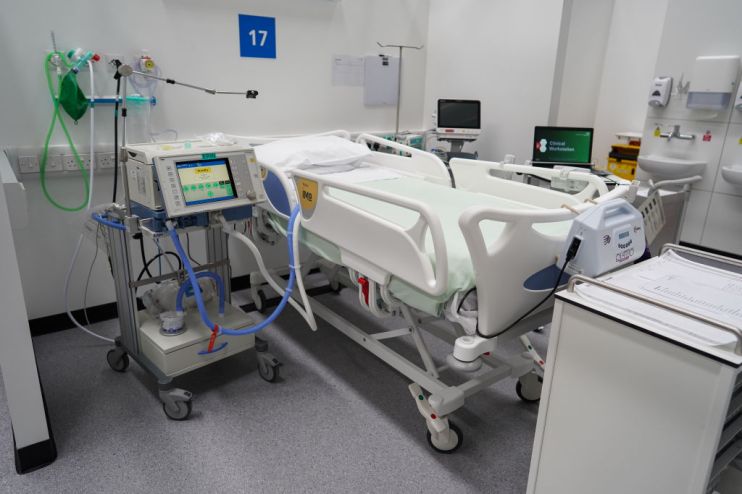Production under controversial ventilator challenge comes to an end

Production of medical breathing devices under the UK’s “ventilator challenge” will come to a halt this weekend, with the government claiming success for its controversial scheme.
The challenge was launched in late March when the government feared that the UK’s existing supply of ventilators – machines which help people to breath in intensive care – would be overwhelmed by the coronavirus crisis.
Private companies were called upon to produce existing models or design their own from scratch for use in the NHS.
Production is to come to a close this weekend. The government said that around 14,000 devices have been produced by private companies in the UK including Penlon, Babcock and Breas Medical.
However, forecasts of tens of thousands of people needing ventilators did not come true. The vast majority of those needing breathing equipment used the NHS’s already existing machines with few produced by the ventilator challenge being used.
The UK has one of the worst coronavirus death tolls in the world, at more than 44,000. Yet a large number of these happened in care homes rather than hospital.
Ventilator scheme was controversial
The ventilator challenge has been controversial, with the government accused of a number of missteps. The UK failed to join an initial EU ventilator procurement scheme in March.
It was accused of pursuing, and encouraging firms to make, models that were too simple early on in the pandemic.
In a memo leaked to the Financial Times, a team of expert advisers told the UK’s medical safety regulator in April that going after basic designs “will result in the need for more ventilators, more oxygen, more drugs, more ventilator days, more staff and almost certainly worse patient outcomes”.
However, the government has furiously defended the ventilator challenge. It has said it always envisaged a mixed approach which would boost the production of domestically-made ventilators and import the more complex machines.
The government today said the challenge was a big success. It said the UK now has over 25,000 devices now available in total to the NHS, up from 9,000 before the start of the pandemic. Over 2,500 have been imported from abroad.
Prime Minister Boris Johnson said: “Thanks to these efforts, everyone who needed a ventilator has had access to one, and the NHS has the vital machines it needs to continue providing life-saving support against this deadly virus.”
Tom Clutton-Brock, director of the Medical Devices Testing and Evaluation Centre, said: “Designing, manufacturing and testing ventilators usually takes years. So it’s outstanding the progress which has been made in a space of months.
“Having tested all of these devices, it’s impressive that several new models met the regulator’s requirements.”